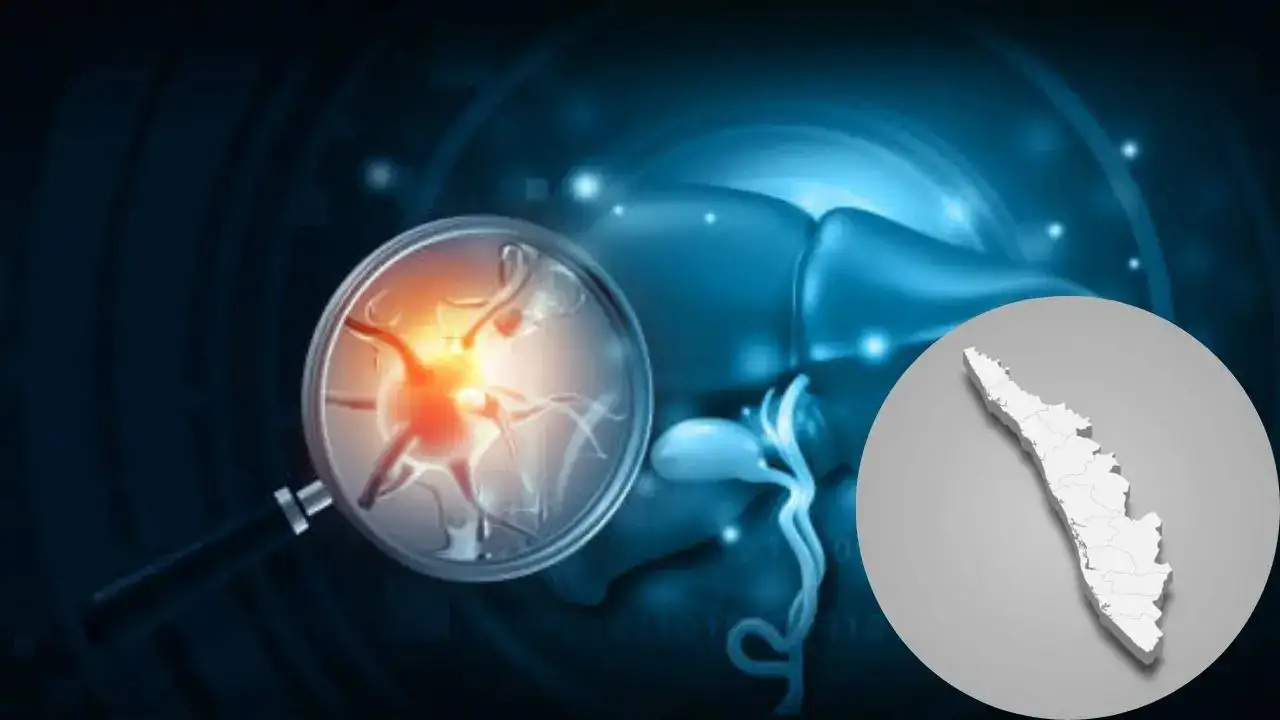
Experts believe the disease spreads mostly during summer when there is a water scarcity and people end up consuming contaminated water
Even as COVID-19 continues to cause a spike in India, especially in the state of Kerala, the state is now grappling with another serious health issue – rapidly spreading. There has been a dramatic rise in the cases of hepatitis, with Thrissur being the epicentre.
News reports say the sudden surge has triggered panic among residents and prompted health officials to issue an urgent advisory. Data says the state recorded 3,227 confirmed cases and 16 deaths this year until late April, with Ernakulam, Malappuram, and, more recently, Kozhikode emerging as the worst-affected districts.
Last year, the southern state recorded 7,943 Hepatitis A cases and 81 deaths, with multiple outbreaks reported, especially in Malappuram and Ernakulam’s Vengoor. Experts believe the disease spreads mostly during summer when there is a water scarcity and people end up consuming contaminated water when clean water is unavailable.
Emphasizing the need for careful vigilance, District Medical Officer T. Sreedevi asked residents to drink only boiled and treated water. "Only boiled and properly treated water should be used for drinking. Avoid stale food at all costs," she mentioned while advising the public. With the arrival of the monsoon, authorities are now also cautioning about an increased risk of other waterborne diseases like leptospirosis and dengue due to possible flooding.
What is hepatitis?
Hepatitis is inflammation in your liver – your body’s response to an infection or injury. According to experts, many things can injure your liver and trigger hepatitis, which also includes certain viral infections. However, you can also develop it if you have diseases that affect your liver or you are exposed to toxins like chemicals, alcohol, or drugs.
The condition causes symptoms that happen suddenly and then go away within six months. But you may have hepatitis that does not go away and slowly gets worse.
There are various types of hepatitis, which can be more common than others:
- Viral hepatitis
- Toxic hepatitis
- Autoimmune hepatitis
Signs and symptoms of hepatitis
According to doctors, hepatitis can be sneaky, and so you may not notice changes in your body right away. But when you do, you may have signs and symptoms like:
- Deadly diarrhoea
- Fatigue and tiredness
- Feeling weak or generally uncomfortable
- High fever
- Nausea and loss of appetite
- Pain in the right side of your upper belly
You may have other symptoms if you have chronic hepatitis that does more damage to your liver. Chronic hepatitis symptoms include:
- Confusion, disorientation or drowsiness
- Dark-coloured pee and light-coloured poop
- Itchy skin
- Yellowish skin or a yellow tint to the whites of your eyes
What are the complications of hepatitis?
Severe or persistent hepatitis causes:
Cirrhosis
Also known as scarring in your liver, it happens when your liver tries to repair the damage that the disease causes. Cirrhosis of the liver is a severe disease.
Liver cancer
Hepatocellular carcinoma, or HCC, is the most common form of liver cancer.
Liver failure
Liver failure happens when your liver stops working. Acute viral hepatitis that attacks your liver may cause liver failure.
